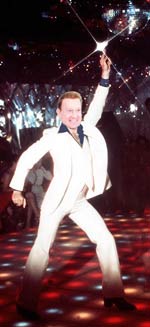Originally posted as the second part of February 9, 2012 blog post
In the prior post, Part 1, we analyzed the concept of Enlightenment and some of its meanings from Kant to SRI VALS to Eastern philosophy, and pointed out that it is not an attainment but a maintainment, as one keeps slipping back out of it, with very few making it a permanent state. In this post we’ll focus on the practical steps one can take to beat the odds of spending more time in that state.
It’s okay to be a saint, in other words. It doesn’t mean you are NOT Enlightened. It simply depends on why you are acting saintlike. If there is any trace of ego motivation, you are merely in the highest attachment area before Enlightenment, which is not bad at all. Especially today when Acceleritis™ has us on the brink of our own mass destruction and already practicing it actively against other species of fauna and flora. If you count insecticides that have caused awful cancers and brain diseases, we are already practicing mass destruction against our own species, so caught up in Acceleritis are we.
So if you want to be a world saver, or caregiver, or an otherwise unselfish actor, consider that a degree of Enlightenment already; go ahead and give in to it. We need more of it anyway. It will lead you all the way.
And so as to technique: what techniques can be engaged in order to have these brief epiphanies of Enlightenment?
Why would a saint be taken out of Enlightenment if primarily motivated by the desire to please God?
Because this takes one out of the moment — doing the moment for something outside of the moment — something that exists in the future. Flow, which contains Enlightenment at its top end, does not work that way. If one is doing something for any outcome, one is out of Flow.
One is even out of Flow if one is grading one’s own performance. This is one of the biggest blocks to Flow. This is part of the herd mentality. You are only worth what others think of you. Each moment you have to be attached to what they think of you. This is drilled into us with reward/punishment (“Good Billy! Bad Billy!”).
This goes deep and starts at the first moment of dissociation, the first descent from Flow singularity/pointedness into a divided sheaf of self — the moment Freud referred to in Civilization and its Discontents when the Ego (manager-intermediary) first forms. Freud saw the id (the self that one is born with) as being a primitive, animal-like tabula rasa (a blank state) rather than being the single Consciousness of the Universe — the pure state of Selfness — the singularity of experiencing — the Observer.
Whatever the parts of consciousness that exist when one is divided, as has become the endemic (and to Freud, natural) state of our race — the point is that a divided mind is the opposite of Flow. Our hypothesis is that our race could have existed mostly in Flow at some point far back enough in time, before Acceleritis set in.
Not being divided inside manifests as there being no distinction between your self and the moment. It is all one piece. You are not observing it from outside. You are experiencing it from inside while being totally immersively aware of the moment. You are not rating your own performance. You are not focused on success. You are not trying to remember technique. You are not narrating your own life novel. You are not making smart alecky comments although they may occur to you wordlessly. Feelings and ideas are happening quickly without being seized upon by the muscle of the mind. They do not take away attention from Flowing with the moment. You are not trying to figure out why you are doing this, or what techniques you are using — you are just doing what comes naturally.
When in Emergency OversimiplificationProcedure (EOP), we are living as though watching a rear view mirror, facing backward all our lives, with breaks to look forward. Only once in a while are we lucky enough to see/be the moment as it happens, not seeing ourselves and the moment as different things. This is to be cultivated.
The looking backward is all about slave mentality — judging your own performance in sublimated attachment to what others think of you. Such attachment is a form of dilemma perception — seeing everything to always be in a world of permanent dilemma, imperfection, hence the need to strive for something outside of the moment.
The word dilemma is all about being divided — “two postulates” is the Latin root meaning. Of course if there is more than one postulate there is the potential for a conflict between them, hence the uneasiness of having a dilemma. Dilemma, dissatisfaction, striving, attachment, all of these are the same thing — EOP. The state the great majority of us are in virtually all of the time. Our leverage to get out of that state and into Flow state is through these little windows that are only an inch away.
Here’s a recap:
- If one is doing something for any outcome, one is out of Flow.
- Grading one’s own performance is one of the biggest blocks to Flow.
- A divided mind is the opposite of Flow.
- In Flow, there is no distinction between your self and the moment. It is all one piece.
- In Flow, you are not trying to figure out why you are doing this, or what techniques you are using — you are just doing what comes naturally, in the moment.
Jump through!
Best to all,
Bill
Follow my regular media blog contribution, “In Terms of ROI“ at MediaVillage.com under MediaBizBloggers. Read my latest post.

